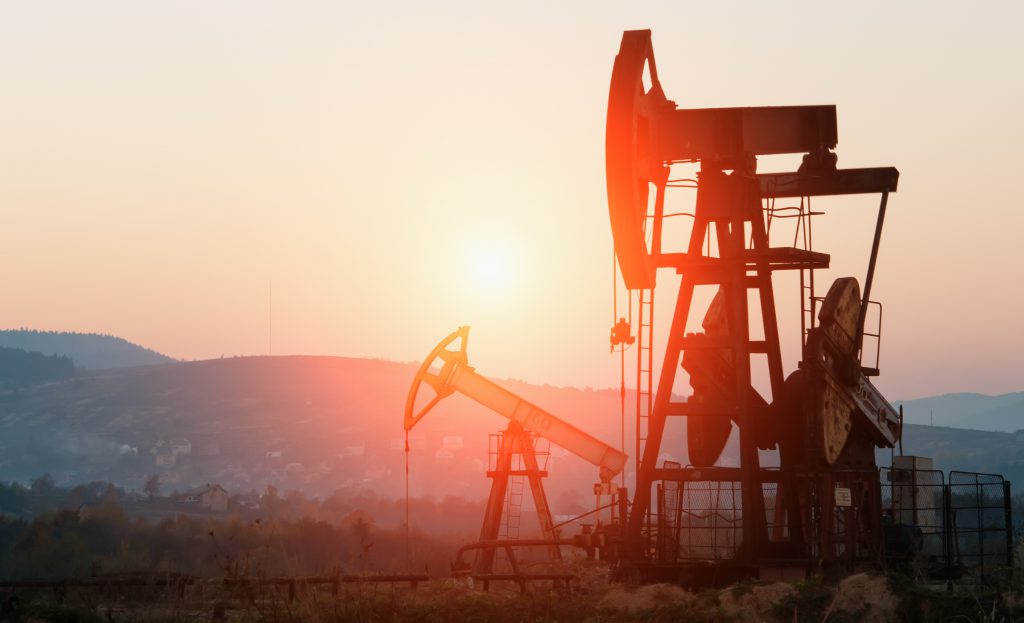How an Emulsion Breaker Works and How to Find an Effective One for Crude Production
For Oil and Gas Emulsion Breakers, Rely on Berryman’s Decades of Experience
Everyone in the petrochemical industry knows that oil and water don’t mix, but they often occur together. Water, usually saltwater, is a common contaminant of crude oil. Oil suspended in water keeps it from being returned to the environment. Separating oil and water is the function of an emulsion breaker, also known as demulsifier.
WHAT DOES AN EMULSION BREAKER DO?
Emulsion breakers can be understood as droppers, treaters or a hybrid of the two types. Droppers are usually low-molecular weight non-polymeric compounds. They cause relatively large water droplets to coalesce. This action releases water, especially salt water, from heavy crude oil. Treaters are usually high-molecular weight polymers with a water-attractive, hydrophilic tip. These compounds change the surface tension of an oil and water mix so that micron-sized droplets of water “gather” at the base of column of crude. As the oil at the top of the column is dehydrated, it becomes noticeably lighter in color. Hybrid compounds are specialty chemicals that take on characteristics of both droppers and treaters for special applications, such as emulsion breakers for crude mixed with large amounts of salt water.
TYPES OF EMULSION BREAKERS
Thousands of chemical compounds can serve as emulsion breakers. There are desalters, deoilers and dehazers. There are products for high concentrations of salt water (over 40 percent) and low concentrations of salt water (under 40 percent). There are products designed to work at low temperatures (below 30° C) and high temperatures (over 80° C). There are demulsifiers for light crude, heavy crude and waste oil. Some emulsion breakers are designed for “green” applications. These demulsifiers are unique formulations that:
- Have been shown to be inherently biodegradable under government-approved test methods,
- Exhibit low aquatic toxicity,
- Do not bioaccumulate, and
- Achieve a green profile without compromising performance.
What difference do emulsion breakers make in crude oil production? They make crude oil less viscous so it is easier to pump. They allow offshore producers to return salt water safely and directly to the sea. And emulsion breakers are essential for recovery from offshore oil spills. Different applications, however, require very different emulsion breakers.
DIFFERENCES IN PRODUCTION NEEDS CALL FOR DIFFERENT EMULSION BREAKERS
Crude or slop oils are very stable emulsions. They contain droplets of water that can be measured in microns. The process of liberating oil from rock often requires the addition of waxes, paraffins, fatty acids, asphaltenes and resins to crude oil that make the emulsion even more stable. Different rock formations require different chemicals in different amounts. If the emulsion of salt water and oil is not demulsified, the mixture can cause severe fouling and corrosion problems in reboilers, heat exchangers and distillation columns. Sometimes timing is the critical element in choosing an oil and gas emulsion breaker. One product may be less expensive but remove salt water more slowly, relying more on gravity to do its work. Another product may be more expensive but accomplish separation quickly to accommodate production schedules. Sometimes purity is the critical element in choosing an emulsion breaker. Engineers may take special care to prevent equipment failure by tightening their tolerances for the percentage of water in crude. Achieving a slightly different product will require a slightly different emulsion breaker. And the normal production of crude oil results in variations in solids (BS&W or basics, sediments and water) that require constant adjustments in the choice of demulsifying agent.
EMULSION BREAKERS ARE SPECIALTY CHEMICALS THAT REQUIRE SPECIALIZED EXPERTISE
Berryman Chemical Inc. has four decades of experience in developing oil and gas emulsion breakers that exactly match customer needs. These products deliver the desired purity of product with high reliability. With an industry-leading network of terminals located strategically across the US, Berryman moves products via rail cars, trucks, barges and vessels at lower costs. We can handle your supply needs from production to delivery directly to your site. We can provide any level of logistic and regulatory support you need in between. Every oilfield is different. Berryman has the know-how and the inventory to create tailor-made formulations for each end-user to provide the benefits of our technologies at an optimum cost. Contact us to request a standard or customized chemical solution.

